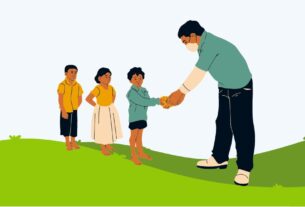Unnati project, an initiative for MGNREGA beneficiaries, falls short in achieving the target due to lack of interest and technical issues.
Central Government’s skill-upgrading initiative – Unnati Project for Mahatma Gandhi National Rural Employment Guarantee Act (MGNREGA) beneficiaries has not been able to achieve its set target for the country as the beneficiaries are not showing any interest. This is because the beneficiaries did not receive stipend under MGNREGA
Tejas, Karnataka project manager of Rural Development (MGNREGA), said that the number of MGNREGA beneficiaries trained under Unnati project is certainly low.
Prabhukumar, president of Karnataka State Karmika Hitarakshana Union, Kengeri said, “Most of the workers associated with us had faced challenges in receiving their pay. Major contractors often do not pay the workers for their daily labour for months.”
In Karnataka, Unnati Project has been able to provide skill-upgradation training to 45-50 percent beneficiaries of MGNREGA, which is half of its target. The longer than usual delay in receiving stipend for the work done under MGNREGA has been discouraging workers from applying for skill-upgradation training under Unnati project.
Sunil, project manager at National Rural Livelihood Mission (NRLM), Karnataka said, “Under the Unnati project, for 2023-24, our set target is to train 2000 beneficiaries. However, as of now we have been able to provide training to almost around 780 beneficiaries all over Karnataka.”
The Ministry of Rural Development states, Unnati project is a skill-upgrading project launched in 2020 for providing skill-based training to the MGRNEGA beneficiaries to improve their livelihoods. After a worker has completed his 100 days of unskilled labour work under MGNREGA, they are provided skill-based training under Unnati to help them become independent. This project includes three training programmes – Deen Dayal Upadhyay Grameen Kaushal Yojana (DDUGKY), Rural Self Training Institute (RSETI) and Krishi Vigyan Kendra. Unnati Project provides training programme to one adult member between the age group 18-45 years after completing 100 days of work under MGNREGA.
However, Unnati project is falling short due to delay in payment under MGNREGA added Sunil. He further added, “The workers who worked for 100 days under MGNREGA in 2018-19 have not yet received their stipend. This situation has led to workers not preferring the skill-based training under Unnati.”
Apart from delay in payments, other factors like technical issues have been contributing to the disinterest of the MGNREGA beneficiaries applying for Unnati Project. Sunil said, “One of the main challenges in implementing the project is lack of interest shown by the people employed for 100 days under MGNREGA. The 2018-19 data from the field team shows, most of the MGNREGA beneficiaries are not interested in taking skill-based training. However, the beneficiaries that are interested in receiving the training are above 45 years of age, making them ineligible for Unnati project.”
He added that technical issues in the Kaushal Panjee—the skill registration site for rural youth to receive training or starting business—and the release of stipend for work done under MGNREGA are adding on to the existing issues faced by Unnati Project.
“The data on the number of beneficiaries registered for Unnati project that is uploaded and shared from the NRLM website is not being reflected on the MGNREGA portal. There has also been mismatch in the data shared by NRLM to MGNREGA portal; despite us sharing profile of 10 MGNREGA beneficiaries only five of them are visible on the portal. This has been affecting the generation and release of the fund transfer order (FTO) on time, eventually delaying the stipend of MGNREGA beneficiaries,” Sunil said.
Apart from delay in payments, no proper tracking system of MGNREGA beneficiaries for skill upgrading programmes under Unnati, has also been adding to the failure in achieving the set target. Sunil said, “We have been trying to get the beneficiaries of MGNREGA who have worked during the FY2018-19., However, as most of them have crossed the age limit for training which is 45 years, they are not interested in taking up the training.”
He added that some districts of Karnataka have also tried to identify and send MGNREGA beneficiaries for the skill-based training under Unnati. However, for others the NRLM has not been able to do so, especially for the districts wherein the MGNREGA beneficiaries had faced issues related to delayed stipend or had not received their stipend.
Anshika Katara, a public policy expert from Bangalore said, “Skill development programs like Unnati project are necessary to increase employability of the working force in rural areas instead of making them dependant on unskilled labour.”
She added that government should look into the technical issues faced by the departments concerned with NRLM and MGNREGA and help the beneficiaries of MGNREGA to gain skill-based trainings.
An article by The Hindu reported that Unnati project has trained 25,056 persons as against its target of two lakh. Guidelines of project “Unnati” on Skilling of Mahatma Gandhi NREGA workers shows, in FY2019 the percentage of beneficiaries who had completed their skill-based training under Unnati project was around 39 percent of set national target.
The book of guidelines further adds that no provision for compensation of wage loss (stipend), no formal inbuilt monitoring mechanism, lack of mobilisation of eligible candidates (MGNREGA beneficiaries) and lack of training cost reimbursement, were the reasons for the below desired level performance of Unnati project.




